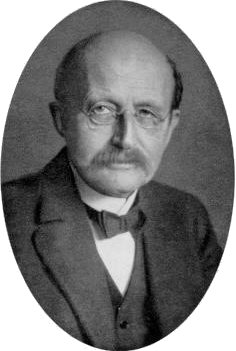[#34] Clarity and Conviction
By Piet Hut
Having a strong conviction can be very helpful in creating great clarity. But at some point, the initial conviction can get in the way, cramping our style, and closing the door to even greater clarity. In science, initial conviction is necessary, but without peer review, it can lead to tunnel vision and become a trap. In such cases, would it be possible to fall back on an even deeper form of universal conviction?
Nowadays anything called "universal" is met with great skepticism, and for good reason: the term has been misused in countless ways. Even so, let us ask this question with fresh eyes and an open mind.
Scientific research means groping in the dark, at least to some extent. Even the simplest numerical calculation or theoretical derivation, as well as experiment or observation, can suddenly confront us with an unexpected outcome that may lead to new insight. And to the extent that we are groping in the dark, typically there are handrails, a hypothesis that we want to test, together with a protocol for doing those experiments or calculations. But the bedrock of scientific research is the conviction that some kind of answer is possible.
In other words, for every problem, no matter how small or large, it is never the case that scientists will decide: well, there just might not be anything we can say about this, it is probably too hard to ever figure out. Such an attitude is just not an option. This is one essential aspect of science, that sets it apart from most other human activities.
It does happen from time to time that the initial formulation of a problem turns out to be unanswerable. But that doesn't mean the the problem can't be solved. On the contrary, it has always taught us to think in broader and more inclusive ways. When doing so, we have always found a way to reformulate the question, which then opened new and sometimes qualitatively different inroads towards even more marvelous vistas.
Whether the "working hypothesis underlying all other working hypotheses", that for every problem in science some kind of answer is possible, is correct or not, is a very interesting question. So far so good, at least on the level of probing ever deeper into the nature of the physical world. We haven't reached a wall that clearly seems to impede further progress.
The main ELSI building
Aristotle thought that the heavens operated under different laws, not accessible to us. For a long time, the origins and nature of life were also suspected to be beyond the realm of natural science to probe deeply into. However, all signs are that there is a smooth and continuous transition between the processes studied in geophysics, geochemistry, biochemistry and biology. Many teams are now making progress in investigating this problem, with the Earth-Life Science Institute in Tokyo (ELSI) being the largest institute to study these questions in one place, on the campus of Tokyo Institute of Technology.
The major open question has now shifted from the nature and origins of life to the nature and origins of consciousness, the main theme of YHouse. Again, opinions are divided about the likelihood that science can make fundamental progress here. Most scientists expect that again perceived barriers to progress will fall, only as a matter of time. After all, progress in cognitive science is now accelerating enormously, through rapidly growing insight in neuroscience and machine learning.
Others are hedging their bets, impressed by the formidable problem posed by the "hard problem of consciousness", posed and popularized by David Chalmers as a modern reformulation of the age-old mind-body problem: how can a third-person objective description of a brain be reconciled with our first-person conscious experience? These others keep open the possibility that this will be the first problem to which natural science has no answers.
My bet is to side with both attitudes. I think it is highly likely that current methods will not come up with any deeply satisfying fundamental answers. But I do think it is equally highly likely that we will find extensions of our current methods that will be up to the job.
Let us look back about a century in the history of science, for a beautiful example that has all the aspects of what I think will happen, sometime during this century or the next.
Around the end of the nineteenth century, physicists were not only convinced that, in general, some kind of answer is possible to any question posed about the nature of matter. More specifically, they were convinced that they already knew the next layer beyond that bedrock hypothesis. Virtually all of them thought that classical mechanics, initiated by Newton and developed in amazing detail during the next couple centuries, formed an equally firmly established foundational layer on top of that most basic hypothesis.
However, that specific conviction of theirs was completely wrong.
Yet, the conviction that the bedrock hypothesis was right survived the crisis.
Erwin Schrödinger
Specifically, the discovery of quantum mechanics, almost a hundred years ago, took all physicists fully by surprise. The specific working hypothesis, that matter consists of building blocks that behaved like the parts of a clockwork mechanism, universally accepted for centuries, turned out to be wrong.
Instead of giving up, and declaring that the "hard problem of (the nature of) matter" could not be understood, being too hard for humans to wrap their mind around, physicists banded together to look for solutions. And solutions they found, in different and in fact much more interesting ways than had been offered by classical mechanics. Victory appeared through the near simultaneous discoveries by Erwin Schrödinger and Werner Heisenberg of two formulations of quantum mechanics, the first in terms of waves, the second in terms of particles.
Werner Heisenberg
If at this point science would have followed a similar path as most human endeavors, then two rival sects of physicists would have been competing ever since, a Church of Particles and a Church of Waves. But that did not happen, thanks to the bedrock working hypothesis that somehow these different angles of looking at reality could be subsumed under a wider view in which there would be room for both.
And room there was. The Schrödinger picture and the Heisenberg picture quickly turned out to be like two sides of the same coin, albeit a very, very strange coin indeed, but still one that could be describe very precisely mathematically. All this was figured out, in basic outline, suprisingly quickly, in the space of just a couple years.
Max Planck
However, not every reconciliation happens that fast: relativity and quantum mechanics have so far resisted any attempt to find a unified framework for both, notwithstanding almost a century of efforts of many of the greatest minds in physics. Still, the general feeling among physicists is that some unified understanding should be possible in principle. It may take a long time to find it, but the quest is not considered to be hopeless.
Why is that? Max Planck had an interesting answer. Famous as being the first to posit in 1900 that electromagnetic radiation appears in the form of quanta, packages of fixed energy, already during his lifetime he was considered the father of quantum theory. On several occasions he expressed his trust in what I have called here the bedrock working hypothesis. The conviction he had, he called faith, an unlikely term to be used by a twentieth century scientist, let alone the one who got the quantum revolution rolling. Here is a passage from a lecture he gave, later in his life:
This principle is faith -- a faith which looks ahead. It is said that science has no preconceived ideas: there is no saying that has been more thoroughly or more disastrously misunderstood. It is true that every branch of science must have an empirical foundation: but it is equally true that the essence of science does not consist in this raw material but in the manner in which it is used.
Similarly, I put my bets on the "hard problem of consciousness" being met by solutions in some way or other, not within the current forms to which scientific paradigms have evolved, but in future extensions. Let us not make the same mistake physicists made a century ago, thinking the bedrock had already been covered with an equally unshakable next layer. Let us look for possible extensions, informed by empirical means. Informed, but not dictated by experiments: as Planck emphasized, we need new guiding hypotheses to make sense of the raw empirical material.
And it makes sense to be guided not only by the most recent discoveries in neuroscience and machine learning, but also to find other forms of inspiration towards widening our frameworks, where needed.
Piet Hut is President of YHouse (where this blog is hosted), Professor of Astrophysics and Head of the Program in Interdisciplinary Studies at the Institute for Advanced Study in Princeton, and a Principal Investigator and Councilor of the Earth-Life Science Institute in the Tokyo Institute of Technology.

![[#34] Clarity and Conviction](https://images.squarespace-cdn.com/content/v1/585711b3ebbd1a051da20b4d/1520115484895-6DBYM3B5QRSDJGY5DZWO/eagle_PNG1223.png)




